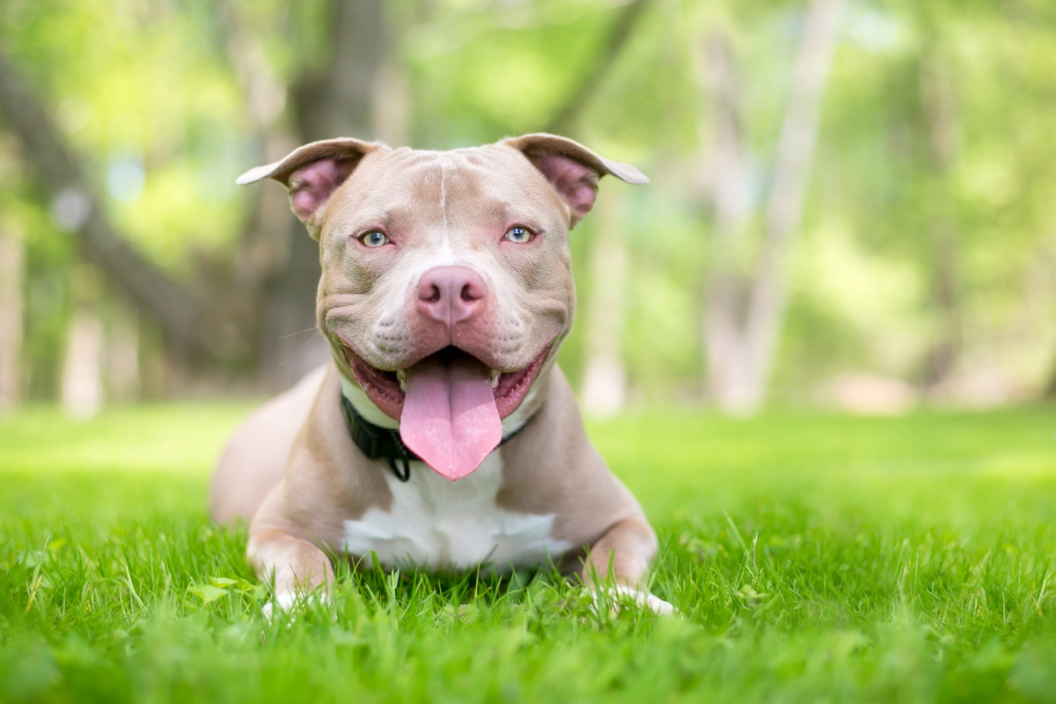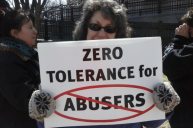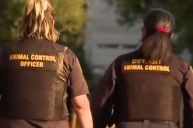I've owned dogs all my life. My first was an English Labrador named Abby — I'd contest that no dog in the history dogs loved tennis balls quite like her. As the coronavirus pandemic and COVID-19 outbreak descended on the world, I felt it time to adopt another dog; Layla turns seven months old on Thanksgiving 2020, and you can guarantee she'll be getting some safely-cooked turkey from the dinner table.
But there's one dog I've ever shared afternoon naps with who stood out most: Buster.
Buster weighed between 95-110 pounds during his adult years. (Yes, he was put on a diet when "110" flashed on the vet's scale.) Throughout his life, Buster caused almost everyone walking towards him to turn tail, cross the street, and give a little extra room before passing by. Buster wasn't mean. Buster never growled (unless he was hungry). Buster cried when he wasn't allowed up on the bed.
But, Buster was a pit bull and mastiff dog breed mix — You see where the "scary" demeanor came from.
Millions of dog owners across the country understand this reality. Owning a zoomie-prone pit bull can be challenging for anyone unable to match their natural energy levels. But because pit bulls were largely bred for dog fighting in the 19th and early 20th centuries, the stigma carried over that pit bulls are inherently dangerous; It feels as if we can't go more than a month before a pit bull altercation is publicized, whether the dog was at fault or not. Because of this, pit bull ownership bans still extend to numerous cities and municipalities across the United States today.
On Election Day 2020, as Joe Biden challenged incumbent President Donald Trump, Republicans and Democrats waged war for comfy seats in Washington, D.C., and local voters chose city council and district representatives, one of the coolest outcomes among ballot measures revolved around animal lovers in Denver, Colorado.
Denver Voters Repeal Pit Bull Ban Dating Back to 1989
Voters in Denver, CO, ended the city?s 31-year ban on owning pit bulls by passing ballot Measure 2J. Pit bulls have been banned in Denver since 1989 after 20 people were attacked in the span of 5 years. pic.twitter.com/AZWzdBZ7ET
— NowThis Impact (@nowthisimpact) November 4, 2020
The idea was first proposed by Denver Council member Chris Herndon back in January, according to The Denver Channel. The push to end this archaic legislation stemmed from the Denver City Council voting 7-4 to lift the ban in February 2020, which Mayor Michael Hancock vetoed citing how "the very real risk to severe injury" related to the pit bull breed was not taken into account.
Ballot Measure 2J was then drafted and sent to the public vote during the 2020 election — It passed with flying colors as 64.5 percent of voters wanted the ban lifted as election results poured in.
2J now gives the City of Denver authority to grant a "provisional permit" to pit bull owners who have their dogs microchipped and meet requirements laid out by Denver Animal Protection, as The Denver Channel cited. Other cities around Denver, including Aurora and Lone Tree, still have breed-specific legislation in place.
The original law banning pit bulls in and around Denver arrived in 1989 in the wake of 20 pit bull attacks over the preceding five years, including the death of a 3-year-old child. Since the ban was in place, proponents of Ballot Measure 2J cited more than $5.8 million in city funding has been allocated to uphold the ban.
we take a break to offer some much needed good news re #Vote2020
Denver voted to overturn a 30 year pit bull ban ? pic.twitter.com/6vtR4M11qt
— Complex (@Complex) November 4, 2020
Congrats, Denver residents! Some high-energy friends are coming to town for the first time in a long time, and one look at these pit bull smiles is all you need to know: It's about time pitties are welcomed back to Denver dog parks.
Is a smiling pit bull part of your family? Let us know in the Facebook comments!




